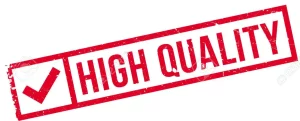- Premium Academic Help From Professionals
- +1 757 528 8682
- support@standardwriter.com
Philosophy Ethics Research Essay
Philosophy Ethics Research Essay
|
Order Number |
636738393092 |
|
Type of Project |
ESSAY |
|
Writer Level |
PHD VERIFIED |
|
Format |
APA |
|
Academic Sources |
10 |
|
Page Count |
3-12 PAGES |
Instructions/Descriptions
Philosophy Ethics Research Essay
Philosophy, Ethics, Research, Essay
Dear Class, Below, you will find your cumulative final exam question. In response to the prompt, you are to compose an essay of no less than 1500 words or, roughly, six full pages, double spaced, size 12 Times New Roman font, standard margins—and no more than 2500 words (roughly ten full pages), due no later than midnight (via ecampus) on Thursday, May 14th.
Late assignments will not be accepted without previous arrangements having been made prior to the deadline, and, as the syllabus clearly states, you must turn in all assignments in order to be eligible to pass the class.
Your response must be thorough and well-written, with references to the text; to that end, I invite you to visit the ‘Course Materials’ tab in ecampus for resources that provide greater clarity regarding my expectations for what constitutes a strong paper, as well as the standards according to which I will evaluate your essay.
I encourage you to use secondary sources, but be sure to cite them to a fault; if I catch a whiff of plagiarism, then you automatically fail the assignment and are subject to further disciplinary actions by the Dean of Liberal Arts. Be bold in your undertaking; I wish you the best of luck!
Prompt Question At this point in your life, what is your overall moral philosophy? To be sure, this is NOT an assignment that invites you to write freely on your individual opinion as though it were a ‘personal reflection’ or a ‘journal entry’ assignment. Rather, the nature of the assignment compels you to engage the course text in an extremely detailed fashion; failing to do so will result in a poor grade.
In crafting your response, you are required to draw from at least three of the primary- source articles covered in class that are contained in ‘Part One: Fundamental Questions’ of Beauchamp’s Philosophical Ethics; these include articles by the following six authors: R. Dworkin (ch.1); G.J. Warnock; J.L Mackie; Brandt; MacIntyre; and Gauthier.
You are, of course, encouraged to draw from more than just three articles; similarly, you are certainly welcome to draw from Beauchamp’s own commentary when designing your argument, yet citing Beauchamp does not count as one of the requisite primary sources.
This question entails three facets of consideration, each of which may inform one’s organizational structure of one’s essay response. First, what do you understand ‘morality to be, broadly speaking? In other words, what do you mean when you refer to something as, say, ‘ right,’ ‘wrong,’ ‘good,’ ‘evil,’ ‘just,’ ‘unjust,’ ‘fair,’ ‘unfair,’ ‘harmful,’ ‘offensive,’ ‘autonomy,’ ‘community,’ ‘obligation, ‘my rights,’ ‘liberty,’ ‘oppression,’ etc., and what does your definition of such terms reveal about your orientation towards life?
Similarly, how did you come to arrive at this position, and what, if any, ethical principles ground your understanding? Secondly, is your moral philosophy susceptible to any sort of criticism? For instance, does it suffer from any inconsistencies, or is it based on any particular prejudices or unfounded biases?
How would you respond to such criticism? Lastly, what does your moral philosophy look like when put into practice? In other words, as you live your life day-to-day, how does (or could) your personal interpretation of liberty reveal itself in the choices you make and the actions you undertake?
Please be specific by describing a concrete situation, including how you evaluated (or would evaluate) the circumstances; how those ethical judgments led you to act; and how you justified those actions at the time versus whether or not you still find them to be justifiable. What might such reflection suggest about the significance of possessing a sense of liberty in your life?
Finally, this essay prompt, like most assignments in the discipline of philosophy, compels one to engage in introspection and, in many ways, could help one come to a fuller awareness, or realization, of who one is and why; to that end, I invite
Professional Plagiarism Free Paper in APA/MLA/Harvard/Turabian Format, Instant Delivery, High Quality Submissions, 100% Unique, Turnitin Report Attached
Philosophy Ethics Research Essay
| RUBRIC | |||
| Excellent Quality
95-100%
|
Introduction
45-41 points The context and relevance of the issue, as well as a clear description of the study aim, are presented. The history of searches is discussed. |
Literature Support
91-84 points The context and relevance of the issue, as well as a clear description of the study aim, are presented. The history of searches is discussed. |
Methodology
58-53 points With titles for each slide as well as bulleted sections to group relevant information as required, the content is well-organized. Excellent use of typeface, color, images, effects, and so on to improve readability and presenting content. The minimum length criterion of 10 slides/pages is reached. |
| Average Score
50-85% |
40-38 points
More depth/information is required for the context and importance, otherwise the study detail will be unclear. There is no search history information supplied. |
83-76 points
There is a review of important theoretical literature, however there is limited integration of research into problem-related ideas. The review is just partly focused and arranged. There is research that both supports and opposes. A summary of the material given is provided. The conclusion may or may not include a biblical integration. |
52-49 points
The content is somewhat ordered, but there is no discernible organization. The use of typeface, color, graphics, effects, and so on may sometimes distract from the presenting substance. It is possible that the length criteria will not be reached. |
| Poor Quality
0-45% |
37-1 points
The context and/or importance are lacking. There is no search history information supplied. |
75-1 points
There has been an examination of relevant theoretical literature, but still no research concerning problem-related concepts has been synthesized. The review is just somewhat focused and organized. The provided overview of content does not include any supporting or opposing research. The conclusion has no scriptural references. |
48-1 points
There is no logical or apparent organizational structure. There is no discernible logical sequence. The use of typeface, color, graphics, effects, and so on often detracts from the presenting substance. It is possible that the length criteria will not be reached. |
Philosophy Ethics Research Essay
 |
 |
 |
 |
 |
 |
Philosophy Ethics Research Essay
Place the Order Here: https://standardwriter.com/orders/ordernow / https://standardwriter.com/



